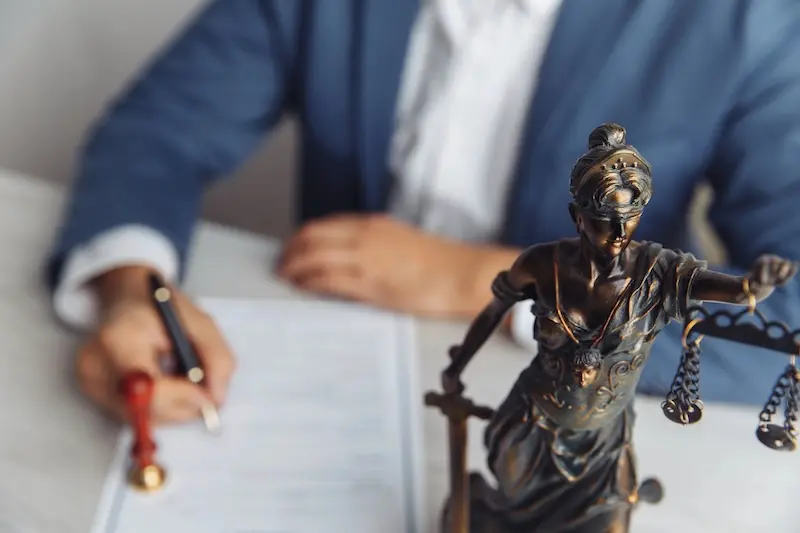Untangling divorce and debt resolution isn’t easy, but you do have options.
Divorce is as much a financial issue as it is an emotional one. For many couples, debt remains long after the relationship ends through joint mortgages, personal loans, credit cards, etc. When those debts feel unmanageable and tangled up in the breakdown of a marriage, the stress can be overwhelming.
At Alan McGee & Co, we help clients navigate both family law and personal insolvency with clarity and compassion. When the two issues are intertwined, as they so often are, we use practical legal tools to find a fair, workable outcome for both parties.
Can Personal Insolvency and Family Law work together?
Yes, and in many cases, they must.
A Personal Insolvency Arrangement (PIA) can be a powerful solution when one or both partners are burdened by debt. It helps restructure what’s owed, protect assets where possible, and offer a path forward. But here’s the catch: while a PIA can deal with debt, it can’t transfer property ownership. That’s where family law orders, such as Property Adjustment Orders, come in:
PIA:
- Can sever joint liability for debt
- Restructures debt based on ability to pay
- Protects debtors under Irish insolvency law
Family Law Order:
- Can transfer ownership of property
- Can formalise who retains the family home
- Protects spouses under family law
By combining both, it’s possible to protect the family home, fairly assign debt responsibility, and resolve long-standing financial deadlocks, even in cases where relationships are strained.
Real-world examples of how divorce and debt resolution work
We’ve handled numerous cases where personal insolvency and family law intersect. Here are a few examples (names and identifying details changed for privacy):
Case 1: Repossession Threat Averted
A Garda, recently separated, was living in the family home, which was under repossession proceedings. The mortgage was over €500,000.
Through a structured PIA, he surrendered the property and moved to rented accommodation, while his ex-wife (with no means) also entered a PIA. Divorce was granted on consent.
Outcome: Both parties addressed their debt legally, and repossession was avoided.
Case 2: Commercial Property and Family Home Divided
A separated couple with adult children remained on good terms but were jointly liable for repayments on several properties.
Using Judicial Separation proceedings and interlocking PIAs, the wife retained the family home, and the husband took over the commercial property, each mortgage restructured individually.
Outcome: A fair financial split that allowed both to move on with clarity.
Case 3: Fast-track Divorce through Cooperation
In a Midlands case, a woman was left in negative equity due to her husband’s failed business.
Despite a strained relationship, both pursued separate PIAs and finalised a divorce settlement, all in under an hour at their first meeting.
Outcome: Her mortgage was made affordable, and he was removed from all liability.

Why combining divorce and debt resolution matters
Many people remain stuck in legal and financial limbo after a relationship ends, not because they’re unwilling to move forward, but because they don’t know how. Joint mortgages, lingering debts, and unclear legal paths can make it feel like there’s no way out, but there is.
When handled strategically, personal insolvency and family law can work together to deliver outcomes that are fair, balanced, and manageable for both parties. Whether that means protecting the family home, dividing assets responsibly, or removing one party from a mortgage, it starts by understanding your rights and options.
At Alan McGee & Co, we specialise in these situations. Alan McGee, solicitor, Personal Insolvency Practitioner, and author of Personal Insolvency Law in Ireland, has advised on hundreds of personal insolvency arrangements, many of them involving complex family circumstances.
Our approach is grounded in practical experience, delivered with discretion, professionalism, and compassion, whether you’re:
- Trying to remain in your home
- Struggling with debt linked to a former partner
- Unsure how a separation or divorce affects your financial future
No matter the situation, we’re here to help you take control, one step at a time.
Get in touch with us today – the rest gets easier
If you’re separating or already separated and facing debt, the first step is simply to talk to someone who understands both the legal and personal sides of the process. That’s where we come in. Contact our experienced, discreet team today for a confidential consultation and let’s plan the best path forward for you.

